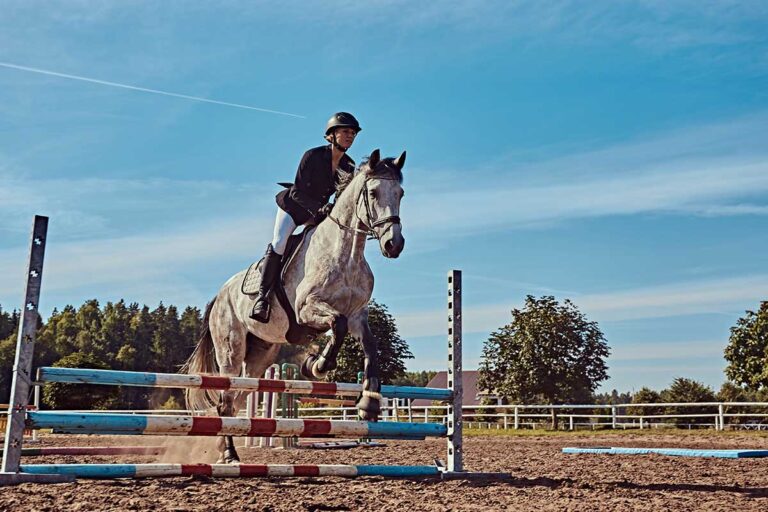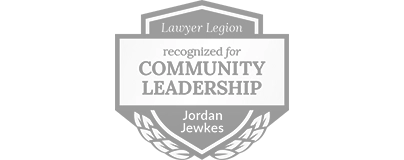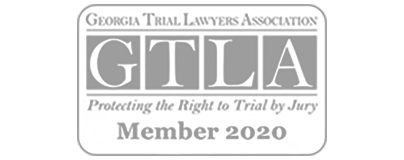Home | LaGrange Personal Injury Lawyer | Horse Injuries
LaGrange Horse Injury Lawyer

Overview of the Legal Framework Governing Equine Injury Lawsuits in Georgia
Equine activities, such as horseback riding and equestrian sports, are popular pastimes in LaGrange, Georgia, attracting enthusiasts from all walks of life. However, as with any physical activity involving animals, the risk of injury is inherent. When accidents occur in the context of equine-related activities, questions of liability and legal recourse often arise. From the nuances of the Georgia Equine Activity Liability Act to the challenges of proving negligence in equine-related injuries, you need to be aware of the complexities of seeking justice and compensation in the aftermath of equine accidents. Whether you are a horse owner, rider, or simply curious about the legal landscape surrounding equine activities, learn valuable insights into the world of equine injury lawsuits in LaGrange, Georgia.
If you or a family member sustained injuries in LaGrange, Georgia from riding a horse or any other equine animal, you could potentially receive compensation for pain and suffering, previous medical expenses, upcoming medical costs, and additional damages. Georgia legislation outlines specific circumstances that permit individuals to file a claim in Georgia for injuries resulting from a horse, donkey, or other equine. The term “equine” encompasses a horse, pony, mule, or donkey. Reach out to LaGrange horse injury attorney Jordan Jewkes for a complimentary
consultation at (770) 293-7590.
Suffering An Equine-Related Injury? Contact Us For A Free Consultation
Suffering An Equine-Related Injury?
Legal Framework for Equine Injury Lawsuits in LaGrange, GA
When it comes to LaGrange equine injury lawsuits in Georgia, it is crucial to understand the legal framework that governs such cases. The state has specific laws and regulations in place that address liability and negligence in equine-related incidents.
Georgia Equine Activity Liability Act
One of the key components of the legal framework for equine injury lawsuits in LaGrange, Georgia is the Georgia Equine Activity Liability Act. This legislation provides certain protections for equine activity sponsors, professionals, and participants from liability in the event of injuries or accidents that occur during equine activities. However, it’s important to note that there are exceptions to this law, and not all equine-related injuries may be covered under it.
Negligence and Liability in Equine Accidents
In cases where the Georgia Equine Activity Liability Act does not apply, the principles of negligence and liability come into play. To hold a party liable for an equine-related injury, the injured party must prove that the defendant breached a duty of care owed to them, which directly resulted in the injury. This can be a complex process, as equine accidents often involve inherent risks and uncertainties.
Comparative Negligence in Equine Injury Cases
Georgia follows a comparative negligence system when it comes to equine injury cases. This means that the court will consider the degree of fault of each party involved in the accident when determining liability and potential damages. For plaintiffs in equine injury lawsuits, this can impact the amount of compensation they may receive based on their own level of responsibility for the accident.
Understanding the legal framework surrounding equine injury lawsuits in Georgia is essential for both plaintiffs and defendants involved in such cases. Navigating these laws and regulations with the help of experienced legal counsel can make a significant difference in the outcome of a case.

LAGRANGE PERSONAL INJURY LAWYER NEAR ME
Steps in Filing an Equine Injury Lawsuit
When faced with an equine injury that may warrant legal action, it is essential to understand the steps involved in filing a lawsuit. Navigating the legal process can be complex, so having a clear roadmap can help streamline the process and ensure that your rights are protected. Below are the key steps in filing an equine injury lawsuit:
Initial Consultation with an Attorney
The first crucial step in pursuing an equine injury lawsuit is to seek an initial consultation with an experienced attorney who specializes in equine law. During this consultation, the attorney will assess the details of your case, including the circumstances surrounding the injury and any potential liability issues. They will also explain your legal rights and options moving forward.
Investigation and Gathering Evidence
Once you have retained legal representation, the next step is to conduct a thorough investigation into the incident that led to the equine injury. This may involve gathering witness statements, obtaining medical records, documenting the scene of the accident, and consulting with experts in equine behavior and safety. The strength of your case will rely heavily on the evidence collected during this phase.
Negotiation and Settlement Options
After the necessary evidence has been gathered, your attorney may explore negotiation and settlement options with the opposing party. In many cases, equine injury lawsuits are resolved through settlement agreements rather than going to trial. Your attorney will work to secure a fair and just settlement that compensates you for your injuries and any related damages.
By following these steps in filing an equine injury lawsuit, you can navigate the legal process with confidence and maximize your chances of obtaining a favorable outcome. Remember that each case is unique, and having a skilled attorney by your side can make all the difference in achieving a successful resolution.

Challenges and Considerations in Equine Injury Lawsuits
Equine injury lawsuits in Georgia present a unique set of challenges and considerations that both plaintiffs and defendants must navigate. Understanding these complexities is crucial to effectively pursuing or defending against a claim in this specialized area of law.
Proving Negligence in Equine-Related Injuries
One of the primary challenges in equine injury lawsuits is establishing negligence on the part of the responsible party. Proving negligence requires demonstrating that the defendant breached a duty of care owed to the injured party, which directly resulted in the equine-related injury. This can be particularly challenging in the context of horse-related activities, where inherent risks are often present, and participants are expected to assume some level of responsibility for their own safety.
Specialized Nature of Equine Law
Equine law is a highly specialized area that requires a deep understanding of not only general principles of negligence and liability but also industry-specific practices and standards. Attorneys handling equine injury cases must be well-versed in the nuances of horse-related activities, such as riding, training, and competition, in order to effectively advocate for their clients.
Insurance Coverage for Equine-Related Accidents
Insurance coverage can also present challenges in equine injury lawsuits. Determining the extent of coverage available for equine-related accidents, including whether the incident falls within the scope of a particular policy, can be complex. Additionally, insurance companies may dispute claims based on policy exclusions or limitations, further complicating the resolution of equine injury cases.
Overall, navigating the challenges and considerations inherent in equine injury lawsuits requires a strategic and knowledgeable approach. By working with experienced legal counsel who understand the intricacies of equine law, individuals involved in these cases can better position themselves to achieve a favorable outcome.
Need a Free Consultation? Need a Skilled Attorney?
Free Consultation
Call (770) 771-5130
If you’ve been injured, you need to hire the best legal care to assist you with your claim. Get a FREE consultation today!
Navigating Equine Injury Lawsuits in LaGrange, Georgia: A Comprehensive Guide
Equine injury lawsuits in Georgia present a unique set of challenges and considerations for both plaintiffs and defendants. The legal framework governing these cases, including the Georgia Equine Activity Liability Act, sets the stage for understanding the responsibilities and liabilities involved in equine-related accidents.
Navigating the complexities of negligence and liability in equine accidents requires a thorough understanding of the law, as well as a careful examination of the circumstances surrounding the incident. Proving negligence in these cases can be particularly challenging, given the specialized nature of equine law and the inherent risks associated with horse-related activities.
For individuals considering filing an equine injury lawsuit, seeking the guidance of an experienced attorney is essential. From the initial consultation to the investigation and gathering of evidence, legal representation can make a significant difference in the outcome of the case. Understanding the negotiation and settlement options available can also play a crucial role in resolving equine injury disputes efficiently and effectively.
Furthermore, the availability of insurance coverage for LaGrange equine-related accidents is a key consideration in these lawsuits. Knowing what insurance policies may apply and how they can impact the litigation process is crucial for all parties involved.
In conclusion, LaGrange equine injury lawsuits require a comprehensive approach that takes into account the unique legal, practical, and financial considerations involved. By working with knowledgeable legal counsel and understanding the intricacies of equine law, individuals can navigate these complex cases with confidence and pursue the justice and compensation they deserve.
GET A FREE CASE REVIEW
PRACTICE AREAS
CASE RESULTS
TESTIMONIALS
Randy M. describes a devastating car wreck and how The Jewkes Firm helped him negotiate with the insurance company and obtain a settlement.
AREAS WE SERVE
Frequently Asked Questions?
Do I need a personal injury attorney?
The Jewkes Firm is well-versed in effectively challenging major insurance companies on your behalf to secure the highest settlement permissible by law. Our primary objective is to ensure your optimal recovery. It is only after this point that we assess the worth of your case.
What is the deadline for filing an injury case in Georgia?
The timeframe for filing an injury case, also known as the statute of limitations, can vary significantly. As per OCGA §9-3-33, you are granted a two-year period from the date of your injuries or the passing of a family member to initiate your personal injury claim.
What is the cost to hire a personal injury attorney?
There is no upfront cost associated with hiring a personal injury lawyer. Our fees are based on a percentage of your settlement, meaning you only pay if we successfully recover compensation. Our top priority is ensuring your well-being and helping you return to your normal life.
What damages can you recover from a personal injury?
A personal injury lawyer aims to establish negligence and seek restitution for the harm caused by the liable party. Additionally, you may be entitled to compensation for funeral costs, medical expenses, and income lost if you are a family member of someone who died as a result of an injury.
Free Case Evaluation












